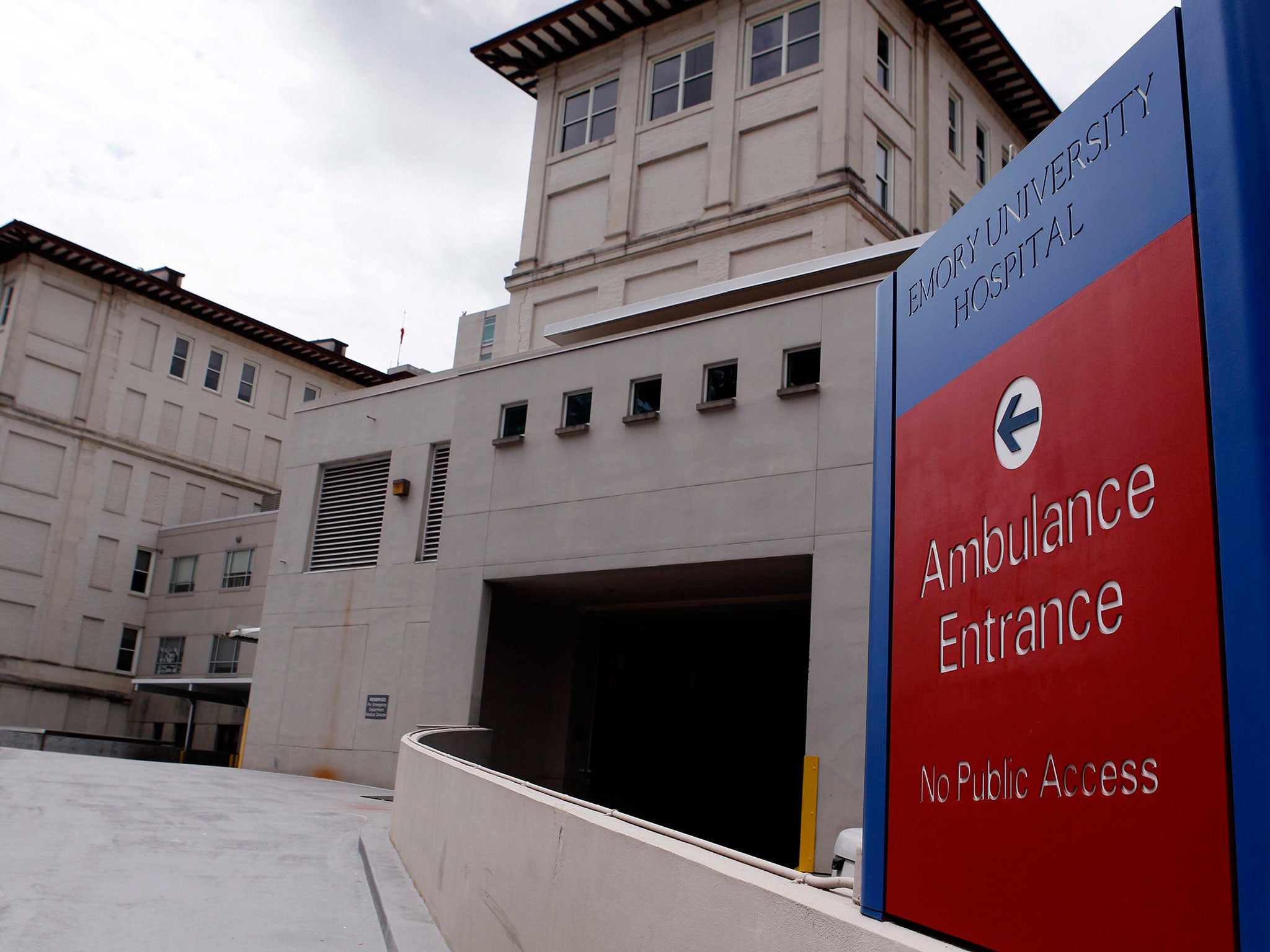Atlanta hospital receives hate mail for treating aid workers stricken by Ebola
Officials are striving to reassure nervous members of the public that their presence in the city does not imply a risk of an outbreak on US soil

The Atlanta hospital treating one of the US aid workers stricken with the Ebola virus, and preparing to receive a second, has appealed to the public to show compassion, after receiving “nasty emails” asking why the patients were allowed back into the country.
Emory University Hospital is expecting the arrival of Nancy Writebol early next week. She will be treated in a specially equipped isolation unit alongside one occupied by Dr Kent Brantly who arrived over the weekend.
Officials there are striving to reassure nervous members of the public that the aid workers’ presence in the city did not imply a risk of an Ebola outbreak on US soil.
“I hope our understandable fear of the unfamiliar does not trump our compassion when ill Americans return to the US for care,” said Dr Tom Frieden, director of the US Centres for Disease Control (CDC), also based in Atlanta. He noted the agency had received some “nasty emails” and about 100 calls from people questioning why the sick aid workers should be let into the US.
Dr Brantly and Ms Writebol became infected while working at a missionary clinic in Liberia. The country is is among three in West Africa that is battling the Ebola outbreak which has already claimed the lives of over 700 people, according to the World Health Organisation.
Dr Brantly was the first to be flown to the US aboard a private air ambulance because he insisted that the only single antidote available at the clinic be given to Ms Writebol.
News video footage showed an ambulance drawing up at the hospital on Saturday and Dr Brantly, 33, stepping out of the back of it and walking gingerly with the help of a medical attendant to the building’s door. Both he and the attendant, as well as the driver of the ambulance, were dressed head-to-toe in protective suits. Once inside, he would have been placed in a sealed unit from which no virus can escape. Close family, including Dr Brantly’s wife Amber will be allowed to communicate with him only through thick glass.
For residents of Atlanta the drama of the doctor’s repatriation was an occasion for natural nervousness but also of pride as commentators and others noted that capacity of the hospital there to give the highest level of care and also security against the disease spreading. The isolation units at Emory were originally built to treat doctors from the CDC who might accidentally be infected with a deadly virus.
“Nothing comes out of this unit until it is non-infectious,” said Dr Bruce Ribner, who will be treating the patients. “The bottom line is we have an inordinate amount of safety associated with the care of this patient. And we do not believe that any healthcare worker, any other patient or any visitor to our facility is in any way at risk of acquiring this infection.”
Among those who were apparently relieved to see Dr Brantly step out of the ambulance was Amber Brantly.
“It was a relief to welcome Kent home today. I spoke with him, and he is glad to be back in the US,” she said in a statement. “I am thankful to God for his safe transport and for giving him the strength to walk into the hospital.”
Join our commenting forum
Join thought-provoking conversations, follow other Independent readers and see their replies
0Comments